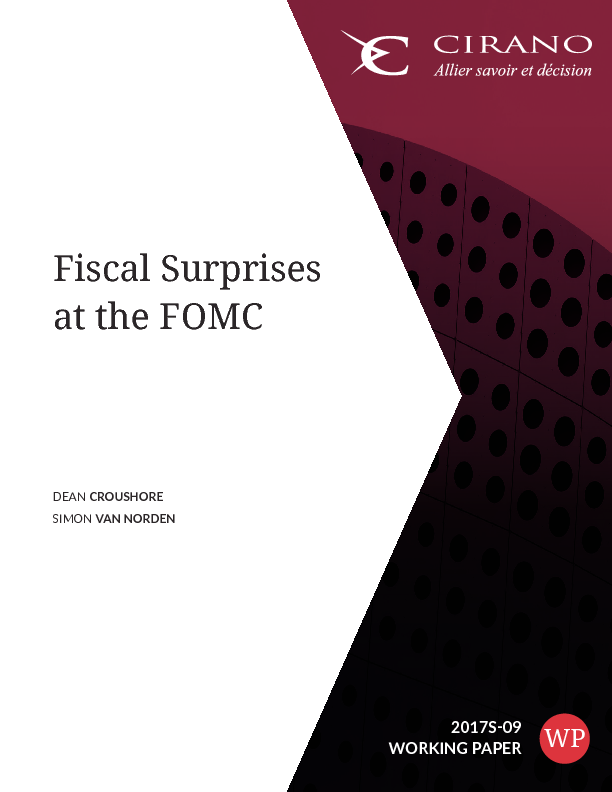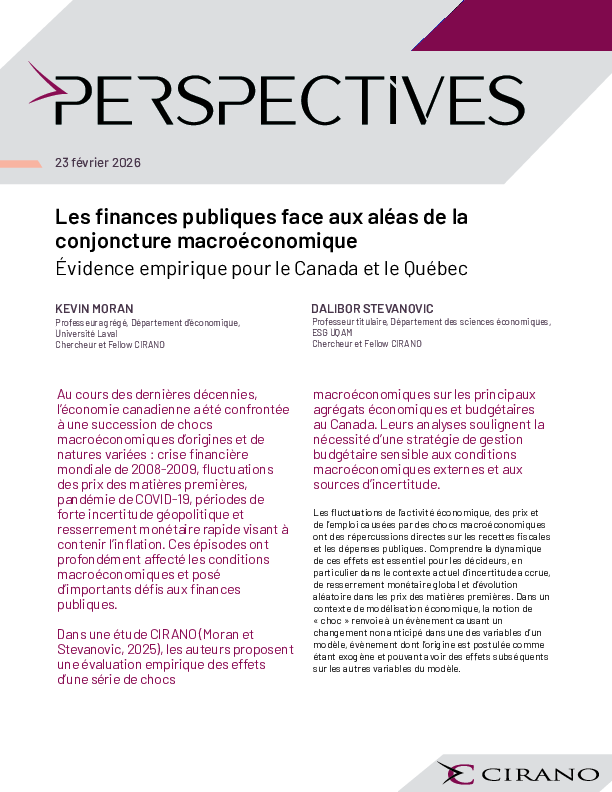Fiscal Surprises at the FOMC
This paper provides an detailed examination of a new set of fiscal forecasts for the U.S. assembled by Croushore and van Norden (2017) from FOMC briefing books. The data are of particular interest as (1) they afford a look at fiscal forecasts over six complete business cycles and several fiscal policy regimes, covering both peacetime and several wars, (2) the forecasts were precisely those presented to monetary policymakers, (3) they include frequently-updated estimates of both actual and cyclically-adjusted deficits, (4) unlike most other US fiscal forecasts, they were neither partisan nor constrained by unrealistic assumptions about future fiscal policy, and (5) forecasts for other variables (GDP growth, inflation) from the same forecasters are known to compare favorably to most other available forecasts.
We detail the performance of forecast federal expenditures, revenues, surpluses and structural surpluses in terms of accuracy, bias and efficiency. We find that (1) fiscal forecast errors can be economically large, even at relatively short forecast horizons, (2) while the accuracy of unemployment rate forecast errors improved after 1990, that of most fiscal variables deteriorated considerably, (3) there is limited evidence of forecast bias, and most of this evidence is confined to the period before 1993, (4) the forecasts appear to be efficient with respect to both the Fed Funds rate and CBO projections, and (5) cyclically-adjusted deficit forecasts appear to be over-optimistic around both business cycle peaks and troughs.




